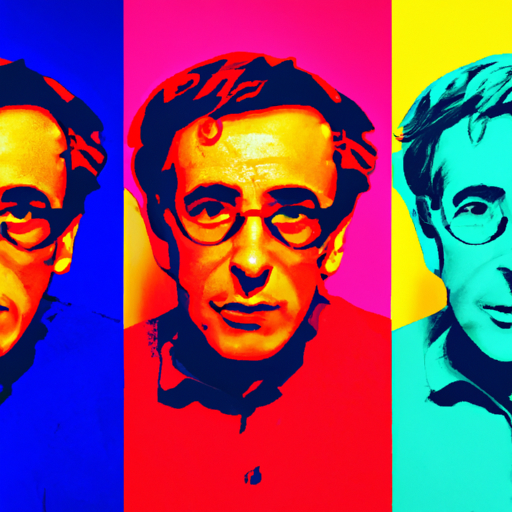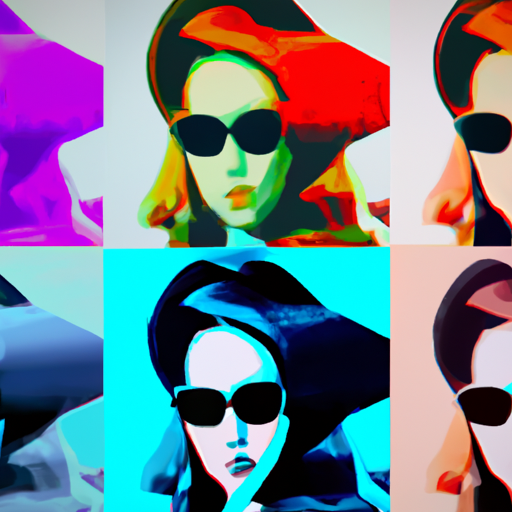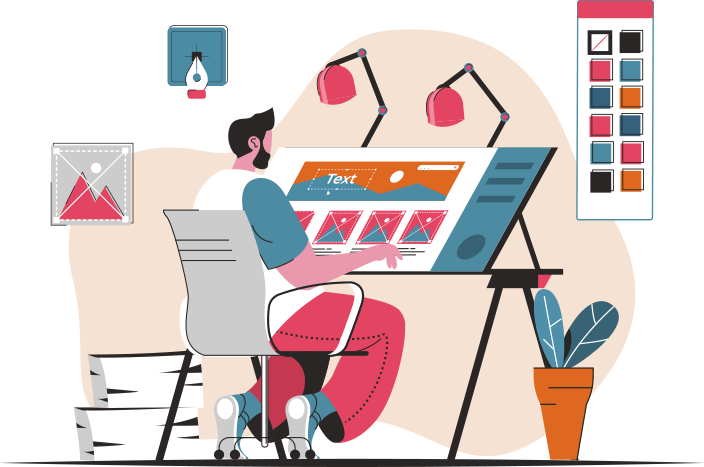
-
Table of Contents
The Fusion of Photography and Graphic Design

Photography and graphic design are two distinct art forms that have long been intertwined. The fusion of these two creative disciplines has resulted in a powerful combination that has revolutionized the way we communicate visually. In this article, we will explore the relationship between photography and graphic design, the impact of this fusion on various industries, and the future possibilities it holds.
The Intersection of Photography and Graphic Design
Photography and graphic design share a common goal: to convey a message or tell a story visually. While photography captures real-life moments and scenes, graphic design manipulates and enhances these visuals to create a desired effect. The intersection of these two disciplines allows for the creation of visually compelling and impactful designs.
One of the key ways in which photography and graphic design intersect is through image manipulation. Graphic designers often use photographs as a base to create stunning visuals by applying various techniques such as retouching, color grading, and compositing. This process allows designers to transform ordinary photographs into extraordinary works of art.
Another area where photography and graphic design converge is in the creation of visual identities. A well-designed logo or branding material often incorporates photography to convey the essence of a brand. By combining carefully selected photographs with graphic elements, designers can create a cohesive and memorable visual identity that resonates with the target audience.
The Impact on Advertising and Marketing
The fusion of photography and graphic design has had a profound impact on the advertising and marketing industry. In today’s visually-driven world, businesses rely heavily on captivating visuals to grab the attention of their target audience.
Photography plays a crucial role in advertising campaigns. High-quality photographs can evoke emotions, tell stories, and create a connection between the brand and the consumer. By incorporating graphic design elements, such as typography and layout, advertisers can enhance the impact of these photographs and create visually stunning advertisements.
Case Study: Nike’s “Just Do It” Campaign
Nike’s iconic “Just Do It” campaign is a prime example of the fusion of photography and graphic design in advertising. The campaign features powerful photographs of athletes in action, capturing their determination and passion. These photographs are then combined with bold typography and minimalistic design elements to create visually striking advertisements that inspire and motivate.
Statistics show that visual content is more likely to be remembered and shared compared to text-only content. According to a study by HubSpot, articles with relevant images receive 94% more views than those without. This highlights the importance of incorporating visually appealing elements, such as photography and graphic design, in advertising and marketing efforts.
The Role in Web Design
Web design is another area where the fusion of photography and graphic design has made a significant impact. Websites are no longer just functional; they are also expected to be visually appealing and engaging. Photography and graphic design play a crucial role in creating visually stunning websites that capture the attention of visitors.
Photography is often used as a hero image on websites, creating an immediate visual impact and setting the tone for the entire site. Graphic design elements, such as typography, color schemes, and layout, are then used to enhance the overall visual experience and guide the user through the website.
Case Study: Apple’s Website
Apple’s website is a prime example of how photography and graphic design can be seamlessly integrated to create a visually stunning web design. The website features high-quality product photographs that showcase the sleek design and attention to detail. These photographs are combined with minimalist graphic design elements, such as clean typography and simple layouts, to create a visually cohesive and user-friendly website.
The Future Possibilities
The fusion of photography and graphic design has already transformed various industries, but its potential is far from exhausted. As technology continues to advance, new possibilities emerge for the integration of these two disciplines.
One area with immense potential is augmented reality (AR) and virtual reality (VR). By combining photography and graphic design with AR and VR technologies, designers can create immersive and interactive experiences that blur the line between the real and the virtual. This opens up new avenues for storytelling, advertising, and entertainment.
Another area of growth is in the field of user interface (UI) and user experience (UX) design. As digital interfaces become more prevalent, the need for visually appealing and user-friendly designs is paramount. The fusion of photography and graphic design can play a crucial role in creating intuitive and visually engaging interfaces that enhance the user experience.
Summary
The fusion of photography and graphic design has revolutionized the way we communicate visually. By combining the power of photography to capture real-life moments and scenes with the creative manipulation of graphic design, designers can create visually compelling and impactful designs.
In advertising and marketing, the fusion of these two disciplines has resulted in visually stunning campaigns that grab the attention of the target audience. In web design, photography and graphic design work together to create visually appealing and engaging websites.
The future possibilities for the fusion of photography and graphic design are vast. With advancements in technology, designers can explore new avenues such as augmented reality and virtual reality, as well as user interface and user experience design.
As the world becomes increasingly visual, the fusion of photography and graphic design will continue to play a vital role in shaping the way we communicate and experience the world around us.
